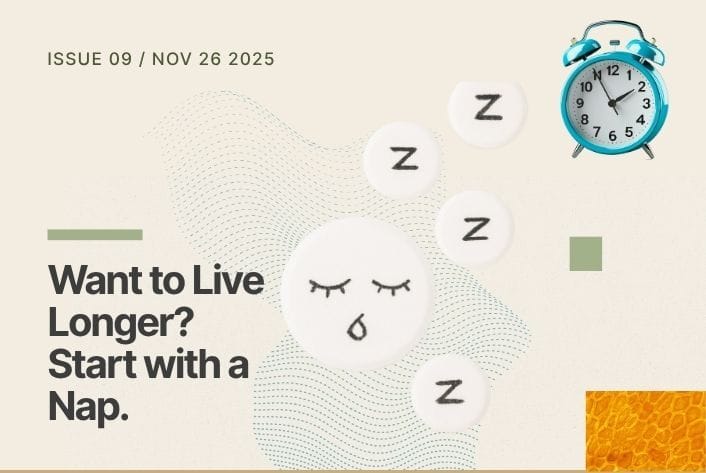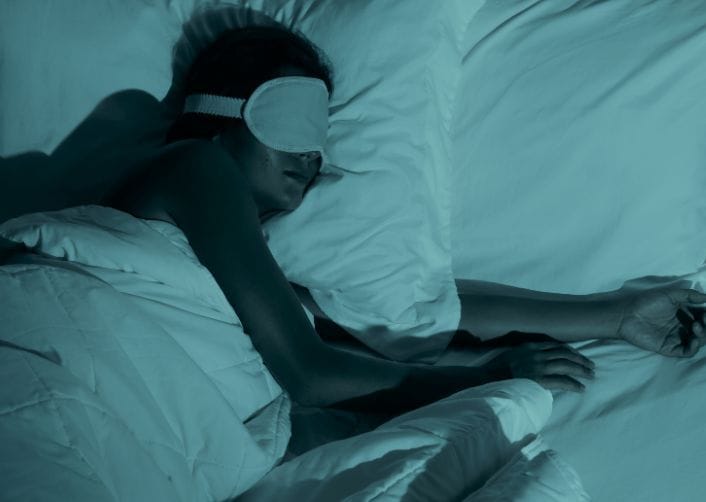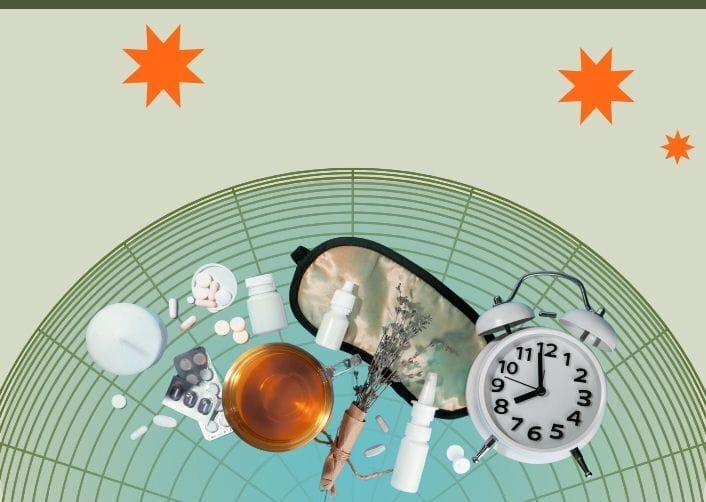Introduction

This week, as the US heads into Thanksgiving weekend, many of us joke about turkey-induced naps, but consider this: new research shows that the same amino acid in turkey, tryptophan, may play a bigger role in longevity than we thought. It’s a good reminder that rest isn’t indulgent. It’s foundational. With the way sleep impacts every one of our systems, I’m taking it as a nudge to embrace a weekend of rest, keeping in mind that sometimes rest can mean more than just the sleep we get at night.
This newsletter focuses specifically on women’s health and longevity. If that’s not relevant to you, no problem—you can opt out of just the Livelong Woman while staying subscribed to everything else.
How does sleep impact your health & longevity?
What if there were a supplement you could take that would lower your blood sugar and blood pressure, while increasing your brain function? Say this magic medicine caused you to eat roughly 350 calories less in a day and lowered your risk of neurological conditions like Alzheimer’s disease? How many of us would line up for access?
The good news is, if you can consistently sleep at least 7 hours a night, you don’t need the magic pill.
Research shows that getting the recommended amount of sleep regularly provides a range of benefits, including lowering blood pressure and improving cognitive function. And because women’s sleep is so closely tied to hormonal shifts, stress cycles, and cardiovascular health, new studies are showing that women actually pay a steeper price for short or irregular sleep—everything from higher blood pressure to noticeable dips in memory and focus.
While most of us recognize that we could use more sleep, changing our habits can be hard. “Small habits, like dimming lights an hour before bed, setting a tech curfew, or even just changing into your PJs to signal the transition to sleep, can make a big difference,” says Nishi Bhopal, MD, sleep physician and founder of Pacific Integrative Psychiatry.
“Just like you wouldn’t drive 60 mph and slam on the brakes to park in the garage, it’s also important to have a runway at the end of the day to wind down before bed.”
Bhopal adds, “And don’t stress if every night isn’t perfect.” Instead, look for patterns over time.
Too much of a good thing can be bad, too
Like anything in life, moderation is important for sleep. While many of us get too little sleep, getting too much can also be a health hazard. A large-scale study published in Springer Nature found that adults who slept fewer than 7 hours a night had a 14% higher risk of death, while those sleeping more than 9 hours faced a 34% higher risk, compared with people who got 7–8 hours of sleep.
The sleep sweet spot? 7-8 hours a night.
Sleep is meant to recharge and regenerate, so our cognitive, physical, and mental abilities are all in top form to power us through our days. And, as Jill MacRae says, “sleep is the only human performance factor you can’t fake, cheat, steal, or replace.”

Amid endless health claims, we’ve put together a 2-day event exploring the science of aging well and the truth behind trendy treatments. Join 75 thought leaders (including Jane Fonda!) and 2,000 women (including me!) for the transformative Livelong Women’s Health Summit in San Francisco on April 17-18, 2026.
In case you missed the announcement earlier this week, Livelong is offering Black Friday pricing for the Summit. Take $100 off each ticket option until Saturday, November 29 at midnight PT.
Planning to attend? Hit reply and let me know! But, first…
📣 Special announcement! We are on the hunt for Ambassadors to work with us on the upcoming Livelong Women’s Health Summit. Interested in becoming an Ambassador or learning more? Send an email to [email protected] to get the conversation started.

Should we all be sleepmaxxing?
The sleepmaxxing trend is popping up across longevity circles, but is optimizing every metric actually benefiting our health?
Sleepmaxxing focuses on various techniques and products designed to optimize sleep quality and duration.
Sleepmaxxing goes beyond traditional sleep hygiene, which focuses on the areas surrounding sleep —such as the environment, routine, and habits —and aims to improve them. We know from research that a few things reliably help sleep:
What doesn’t help? Tracking every data point.
Over-analyzing your sleep metrics can increase anxiety and even lead to orthosomnia, a sleep disorder caused by trying too hard to get that perfect night of sleep.
The most effective sleep strategies are ones that you can fit into your everyday life without adding stress. Instead of focusing on “maxxing,” try these:
Consistency: go to bed and wake up within the same one-hour window, even on the weekends
Light exposure: show your face to the sun as soon as possible in the morning
Stay active: move your body during the day
Wind-down: create a routine that signals to your brain and body that bedtime is coming
Think of sleep like strength training — consistency builds long-term gains.
Poll


How much sleep do you get regularly?
👉🏼 Request to join the Livelong Woman’s WhatsApp group.

Poll Response

We asked, you answered:
Are you interested in testosterone as part of your longevity journey?
“Already using it!” led the answers, but it was a fair mix between that and readers who aren’t using it but are interested or have some concerns. Hormones and their impact on women’s health and longevity is just one of the topics we’ll cover at the Summit. Join us to learn more – we’d love to see you there!
How was today's newsletter?
The information provided about wellness and health is for general informational and educational purposes only. We are not licensed medical professionals, and the content here should not be considered medical advice. Talk to a doctor before trying any of these suggestions.








